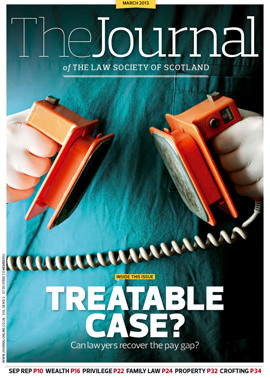How not to win business: a guide for professionals

2. Be afraid to fail
“I make mistakes like the next man. In fact, being – forgive me – rather cleverer than most men, my mistakes tend to be correspondingly huger.” (Professor Albus Dumbledore: Harry Potter and the Half-Blood Prince)
Allowing fear of failure to dominate our decision making is a fantastic strategy for not winning business. There is a wry truth in the observation that lawyers would make terrible oil prospectors: though the oil industry knows that dry wells come with the territory, when lawyers start drilling we expect to be rewarded (most of the time anyway), regardless of outcome.
Like prospectors, we who sell legal services run the constant risk of travelling in hope, only to find nothing but desert. No wonder we are tempted to be “too busy” doing other things. We behave like this because we are human – hard-wired to value avoidance of risk more highly than loss of opportunity. But effective rainmakers know this is useless. They have trained themselves to be resilient, and understand that potential clients may reject them for any number of reasons: loyalty to the incumbent; price; politics; poor personal chemistry, to name but a few. Or even for no reason at all. And sometimes, they will make mistakes. In the face of reverses, the stars pick themselves up, learn, organise and develop over time what has been called an “informed optimism” that if they think strategically, and deploy their skills with conviction, they will succeed.
Optimism is itself a skill, not just a random outcome of genetics or upbringing. It can be learned and measured, as Professor Martin Seligman, one of the world’s leading behavioural psychologists, has proved. He is clear also that achievement depends more on determination than IQ (a comforting insight to your correspondent). See his fascinating book, Learned Optimism.
What if fear is a rational response? The culture we work in has a massive effect on how we act. There are law firm leaders who dream of deploying an armada of rainmakers, but their focus on billable time as virtually the sole measure of performance, and reluctance to speculate, keeps the fleet becalmed. Tight ships have never been more needed, but not so tight that they choke the crew.
Rainmakers have to be bold, but they also need to feel their colleagues are backing them, and they have permission to fail. Was Abraham Lincoln, late of Lincoln & Logan, attorneys at law, appraising Mr Logan’s monthly billings when he declared, “I am not concerned that you have fallen. I am concerned that you arise”? We shall never know, but for certain he was setting the right example.
In this issue
- Remember, remember?
- Equal justice for all?
- Compatibility: devolution issues reborn
- Profiting from the past
- RTI for PAYE - are you ready?
- Reading for pleasure
- A modest proposal – civil marriage ceremonies for all
- Opinion column: Alistair Dean
- Book reviews
- Profile
- President's column
- Fee review: as you were
- Time to draw a line?
- The pay gap: seeking a cure
- Wealth management: Personal injury trusts - how to best invest
- Wealth management: Discretion - the model of choice
- Wealth management: Inheritance tax - discounts up front
- Wealth management: Pensions - time to look ahead
- Whose privilege is it, anyway?
- FLAGS unfurled
- Percentage game
- Rent, rent and rent again
- Sport, rights, and the internet
- An innocent mistake?
- Scottish Solicitors' Discipline Tribunal
- The trouble with in-house lawyers
- Lease of life for the High Street?
- PSG update
- Vacant and ready
- ABS in waiting
- Better ways: where to start?
- Keeping errors in check
- Ask Ash
- How not to win business: a guide for professionals
- What does a speculative fee allow?
- Law reform roundup






